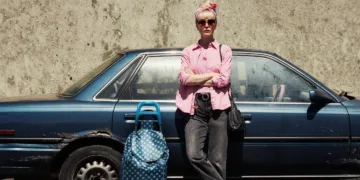Munich’s 42nd Filmfest wrapped on 6 July after drawing 91 000 admissions over ten days—its highest tally since before the pandemic, according to organisers Christoph Gröner and Julia Weigl.
The festival’s richest honour, the €100 000 CineCoPro Award, went to Colombian tragicomedy Un Poeta (A Poet), rewarding German co-producers Katharina Bergfeld and Heino Deckert for their role in Simón Mesa Soto’s Cannes-lauded feature.
Belgian director Alexe Poukine claimed the €15 000 CineMasters prize for Kika, a portrait of a woman reclaiming her voice that topped a field including entries from Richard Linklater and François Ozon.
Cuban newcomer David Bim secured the €10 000 CineVision award with border drama Al oeste, en zapata, while Japan’s Soujiro Sanada earned the €15 000 CineRebels trophy for punk-infused thriller Okamoto.
Audience laurels were split: local viewers chose Julius Grimm’s Bavarian after-life satire Zweigstelle, and international attendees backed Joachim Trier’s Cannes Grand Prix winner Sentimental Value.
National talent also shone in the €70 000 Neues Deutsches Kino awards, where pandemic-set debut Sechswochenamt took best production and best acting for Magdalena Laubisch, and Christina Tournatzés’ abuse drama Karla captured directing and screenplay honours.
Festival bosses said the mix of “discovery and dialogue” resonated with patrons who filled open-air screenings despite record heat, noting that 16 000 of the visits came from industry delegates.
Gröner added that the prize spread “reflects a year in which new voices and established auteurs met as equals,” pointing to the CineCoPro decision as proof of Munich’s growing role in global co-financing.
The closing ceremony capped a programme of 164 films from 54 countries, including gala appearances by Gillian Anderson and Stellan Skarsgård, both recipients of the festival’s CineMerit lifetime award.
With awards decided and attendance rising, the 2025 edition positions Germany’s second-largest festival as a key launchpad ahead of the autumn circuit.















































